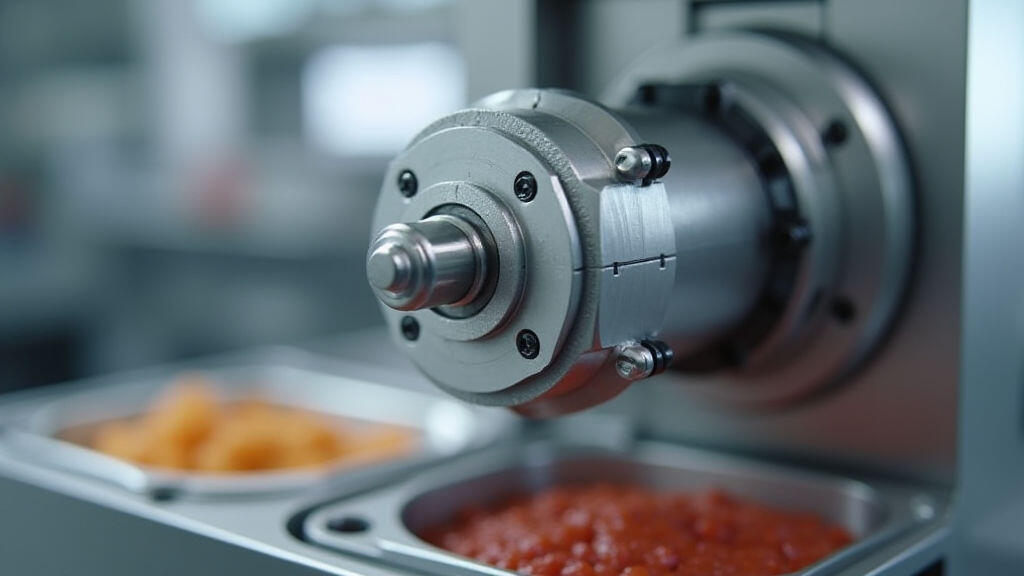
The food processing industry is undergoing a rapid transformation, driven by increasing consumer demands for safety, efficiency, and traceability. This evolution is fueling a wave of equipment upgrades, with a growing focus on precision, reliability, and adaptability. Among the crucial components in these upgrades are micro DC gear motors, offering compact size, precise control, and robust performance – essential characteristics for modern food processing applications. This article explores effective configuration strategies for utilizing micro DC gear motors in upgraded food processing equipment, addressing key considerations and highlighting the potential of these motors to enhance operational efficiency and product quality.
Traditionally, food processing relied on larger, less precise motors. However, evolving requirements, particularly regarding automation and hygiene, are driving the adoption of smaller, more sophisticated solutions. Micro DC gear motors perfectly fit this need. Their compact design allows for integration into space-constrained equipment, while their inherent gear reduction provides high torque at low speeds, crucial for tasks like dispensing, mixing, and conveying sensitive food products. Furthermore, advancements in motor technology have significantly improved their efficiency and environmental footprint – a critical factor given the industry's heightened focus on sustainability. The recent surge in robotic automation within food processing further amplifies the demand for these micro motors. Autonomous systems require fine motor control, precisely what these motors deliver.
Successfully integrating micro DC gear motors into food processing equipment requires careful consideration of several factors impacting performance, reliability, and food safety.
1. Torque and Speed Requirements: Accurate assessment of torque and speed needs is paramount. Different food processing tasks demand vastly different motor characteristics. For example, a dispensing system might require high torque at very low speeds, while a conveyor system might benefit from a combination of moderate torque and higher speed for efficient product movement. Detailed process analysis and load calculations are essential for selecting the appropriate motor specifications. MES-Drive offers a wide range of motors to meet diverse requirements, with detailed datasheets available online.
2. Environmental Considerations & Hygiene: Food processing environments are notoriously demanding, characterized by moisture, dust, temperature fluctuations, and stringent hygiene regulations. Motors must be designed to withstand these conditions. IP ratings (Ingress Protection) are crucial; opting for motors with high IP ratings (e.g., IP67 or higher) provides protection against dust and water ingress, minimizing the risk of contamination. Material selection also plays a role. Motors should be constructed from food-grade materials like stainless steel or food-safe plastics to prevent corrosion and ensure product purity. Consideration of ease of cleaning is also critical; designs facilitating simple disassembly and sanitation are highly desirable.
3. Control System Integration: Precise control over micro DC gear motors is essential for achieving the desired level of automation and accuracy. This involves selecting a suitable motor controller, which can be integrated with the overall equipment control system (PLC or microcontroller). Key control parameters include speed, position, and torque. Advanced control strategies like closed-loop feedback control can be employed to enhance accuracy and responsiveness. Industries are currently leveraging IoT (Internet of Things) to monitor and control equipment remotely, creating opportunities for smart motor management solutions. MES-Drive provides controllers optimized for precise motor control and seamless integration with common industrial automation platforms.
4. Safety Features: Food processing equipment must adhere to stringent safety standards. Micro DC gear motors should incorporate safety features to protect personnel and equipment. These include overload protection, thermal protection, and emergency stop capabilities. Functional safety certifications (e.g., SIL – Safety Integrity Level) may be required depending on the application.

Let’s examine some specific application areas with relevant configuration strategies
A. Dispensing Systems: Precise dispensing of ingredients (e.g., sauces, pastes) is vital for consistent product quality. Configurations include:
B. Mixing Equipment: Efficient and controlled mixing is often critical for blending ingredients uniformly. Configurations include:
C. Conveying Systems: Accurate and reliable conveying systems are essential for efficient movement of food products. Configurations include:
The latest trends in food processing emphasize data-driven optimization. Integrating micro DC gear motors with IoT sensors allows for real-time monitoring of motor performance, including vibration, temperature, and current draw. This data can be analyzed to identify potential issues before they lead to equipment failure, enabling proactive maintenance and minimizing downtime. Predictive maintenance strategies, based on machine learning algorithms, can further enhance reliability by forecasting potential failures based on historical performance data. MES-Drive offers integrated IoT solutions for motor monitoring and predictive maintenance, providing valuable insights into equipment performance and enabling data-driven decision-making.

Micro DC gear motors are no longer simply auxiliary components; they are integral to the advancement of modern food processing equipment. Strategic configuration, focusing on torque, speed, environmental considerations, and control system integration, is crucial to realizing their full potential. The integration of IoT and predictive maintenance further enhances their value by enabling data-driven optimization and proactive equipment management. As the food processing industry continues to embrace automation, sustainability, and enhanced product quality, micro DC gear motors are poised to play an increasingly vital role. MES-Drive is committed to providing innovative motor solutions and comprehensive support to help food processors navigate this evolving landscape. The proactive approach to motor management, facilitated by IoT and predictive analytics, aligns perfectly with the industry’s growing emphasis on resilience and efficiency, positioning micro DC gear motors at the forefront of food processing innovation.
Leave A Reply
Your email address will not be published. Required fiels are marked